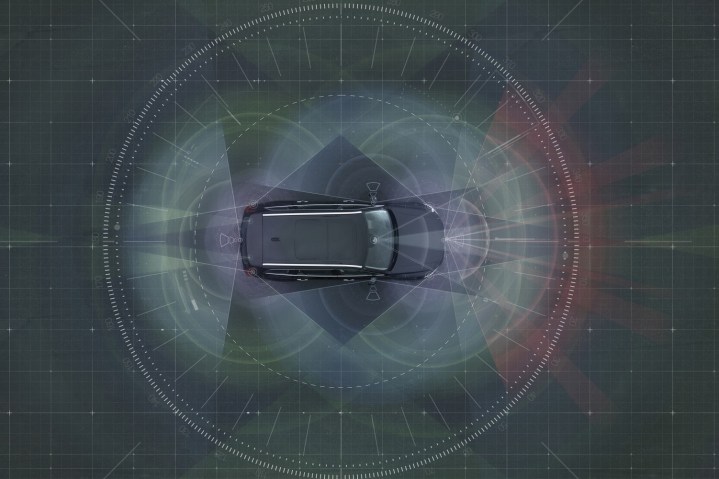
Volvo is a relatively quiet player in the race to bring autonomous cars to the masses in a timely manner. The Swedish company’s investment fund, however, has invested in an American automotive sensor company named Luminar — which is at the forefront of developing Lidar systems — to reach its goal of achieving full autonomy as safely and reliably as possible.
Luminar designed a Lidar system that delivers the necessary performance for full, driverless autonomy at highway speeds and in complex driving environments. An improved resolution and a longer range help the car see up to 250 yards ahead. The company took the project a step further by creating a 3D Lidar infrastructure which labels and annotates the data produced by its sensors. In simple terms, an autonomous prototype equipped with Luminar’s technology sees better and more accurately identifies the objects it detects, like cars, pedestrians, and trees. Many start-ups believe solid-state Lidar will be the future of self-driving cars; Luminar’s tech works differently, but aims to solve the same problem.
“It’s easy to make an autonomous car see 99 percent of the time, but it’s the last percent that’s preventing them from becoming a reality,” Luminar explained.
Luminar already uses Volvo’s cars — like the XC90 — to develop and test its sensing technology. It wants to expand its production capacity to 5,000 sensors per quarter by the end of 2018 but neither company has commented on what comes next. Volvo will presumably offer Luminar’s technology on a production car sooner or later, though it hasn’t provided a timeframe. Luminar also works with the Toyota Research Institute so its technology could also power Toyota or Lexus vehicles.
Volvo plans to invest in other startup companies, and sees the moves as a win-win situation. On the one hand, the automaker gets access to cutting-edge technology without taking the costly route of developing it in-house. On the other hand, the companies that receive an investment from Volvo benefit from its access to the Chinese market — China-based Geely owns Volvo — and the funds necessary to accelerate their development efforts.
“Supporting promising young firms that are at the forefront of technological development will help us introduce cutting-edge technology that strengthens our leading role in the industry,” explained Volvo Cars Tech Fund CEO Zaki Fasihuddin in a statement. Though he didn’t name other companies the fund will invest in, Volvo singled out artificial intelligence, electrification, autonomous driving, and digital mobility services as areas of interest.
Editors' Recommendations
- Volvo unveils the electric 2022 C40 Recharge with Android-powered in-car tech
- CES 2021 and cars: What we expect in autonomous cars, EVs, and more
- MIT’s shadow-watching tech could let autonomous cars see around corners
- Volvo has created an autonomous truck that looks like a sports car
- Volvo wants to use augmented reality tech to help design future cars




